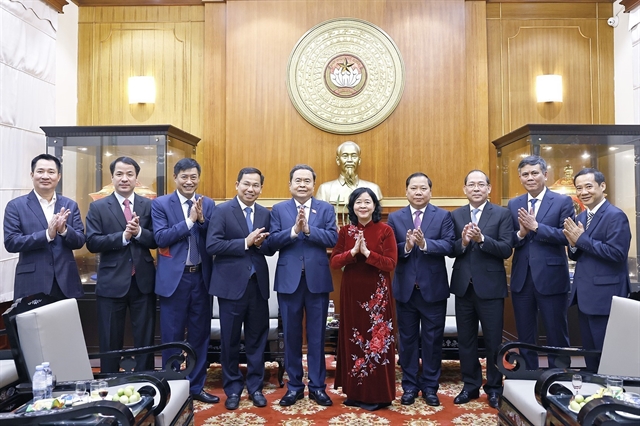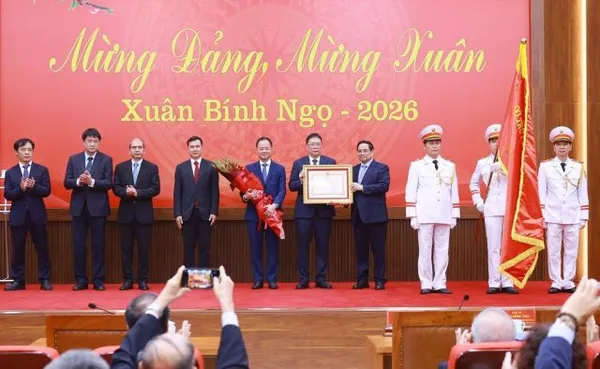 Politics & Law
Politics & Law

With just under three months left in the year, Prime Minister Nguyễn Xuân Phúc’s demand to cut half of all business requirements and inspections is looking increasingly unlikely to be met.
 |
| Solar panels being manufactured at the Canadian Solar Việt Nam factory at the VSIP industrial park in the northeastern city of Hải Phòng. Streamlining business requirements and reforming administrative procedures are very urgent issues critical for economic growth.— VNA/VNS Photo |
HÀ NỘI — With just under three months left in the year, Prime Minister Nguyễn Xuân Phúc’s demand to cut half of all business requirements and inspections is looking increasingly unlikely to be met.
So far, only 1,517 out of 6,191 business requirements and inspections for 1,700 imported and exported products out of nearly 10,000 have been trimmed, Mai Tiến Dũng, chief of the Government Office and head of the Prime Minister’s working group on administrative reforms, said in a meeting on Tuesday where the assessment report on ministry efforts was released.
“Streamlining business requirements and reforming administrative procedures are very urgent issues that the Prime Minister himself stresses at every meeting,” Dũng said at the beginning of the session, adding that the Government leader considered this task “critical for economic growth.”
According to the report, there has been a marked transition from pre-customs clearance inspections to post-clearance inspections, with a stress on risk management.
For example, most of the product lines (279 out of 299) under the management of the science and technology ministry are now only subject to inspections after they have been cleared by customs, which is appreciated by the business community.
Overlapping inspections have also been reduced, with each ministry issuing clear guidelines and standards to ensure mutual recognition of each other’s inspection results.
The report also lauded ministries’ efforts in digitalising their inspections and participation in national and ASEAN single-window mechanisms.
“Still, only 53 procedures out of 283 have been connected to the ASEAN single window; this figure could certainly be better,” Dũng remarked.
Seven ministries have surpassed the Government’s assigned targets for simplifying the list of products to be inspected, with the industry and trade and information ministries eliminating nearly half of their product lists.
On the business requirements front, the information ministry was one of the sub par performers as only 14 per cent have been removed.
The agriculture ministry was also criticised as little effort has been made to streamline red tape.
The transport ministry, for example, was the first to present their plan four months ago to cut business licences and permits by more than half, but it has not yet been completed.
Practical results
Nguyễn Đình Cung, director of the Central Institute for Economic Management (CIEM), said the entire society and the business community placed a lot of hope in the Government’s reforms.
“Still, they could not help but be skeptical,” Cung said. “They doubt if they can trust the words of the ministries and the Government, and whether the changes might be immediate. These are all perfectly valid concerns, in my opinion.”
Cung added that practical results must be delivered soon.
He also urged more efforts to integrate into the national single window and move towards paperless administration.
Bùi Quang Tuấn, director of the Việt Nam Institute of Economics, said that cutting business requirements and inspections is just a short-term solution; the long-term measure must be e-Government.
Representing the private sector, Phạm Đình Vũ from the Việt Nam Chamber of Commerce and Industry called for an official body in each ministry and department to oversee the administrative reforms. — VNS

_med.jpg)


